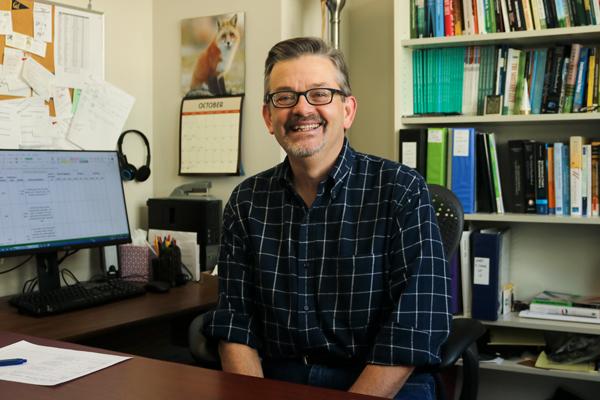The Columbian College of Arts and Sciences will offer a new graduate certificate in environmental resource policy next year to help students understand and develop policies related to the environment.
The new degree within the environmental resource policy program will use an interdisciplinary approach, requiring both governmental policy and natural science courses, and it will consist entirely of existing classes. The program’s creators said students and professionals can earn the certificate for a unique specialization that can advance their careers.
Peter Linquiti, the director of the environmental resource policy program, said the program will teach students how to successfully make environmental policy by considering it from multiple angles.
“I think that environmental policy is one of the more complex policy areas because it really represents the intersection between the natural world and the human world,” he said. “If you want to make environmental policy successful, you have to understand both the natural world and the human world and how they are connected.”
Students who want to earn the certificate must take four existing classes: policy analysis from the master’s of public policy curriculum and three of six other classes in environmental science, economics and public policy.
Certificate students who then apply and are accepted for the master’s program in environmental resource policy may count the 12 credits toward that degree, Linquiti said.
Linquiti said the program is meant for three kinds of students: those currently working who have a bachelor’s degree and need graduate certificates to prove competency in the field, those with master’s degrees in generic fields who want to specialize and current students who want to “test drive” the master’s program in environmental policy research.
“We can be flexible,” he said. “We recognize that these will be a little nontraditional as students. They are not going to be here as full-time graduates or full-time undergraduates.”
Linquiti hopes to enroll five to 10 students in the certificate program’s first semester, he said. The classes can easily accommodate a few extra students, but the program could also expand in the future if it’s popular, he added.
Nancy Augustine, a professor of public policy and public administration, said she began working with Linquiti last spring to outline the certificate program. They designed the certificate around existing resources, and they do not intend to create new classes or hire new faculty for it.
“We were thinking about building on our strengths, building on the foundation of environmental resource policy classes that we already have because we know that they work, and we know that they fit well together,” she said. “The classes that the students are taking for the certificate are not usually packed, so they can be easily accommodated in the classes that we already offer.”
Noel Radomski, the director and an associate researcher at the Wisconsin Center for the Advancement of Postsecondary Education, said creating programs out of existing classes is fairly common because administrators want to make as much money as they can from what they already invest in courses and resources.
“Universities are more dependent on enrollment and therefore on tuition revenue,” Radomski said. “And as they’re dependent on tuition revenue, they need to make sure that their courses and degree programs, including certificate programs, majors, minors, et cetera, have a high enrollment. Frequently, that’s then tied to where they see the greatest needs.”
He added that small programs have their advantages because courses can be included or modified to adapt to changes in a field.
“They’re able to change on a dime, as opposed to a larger program, and for some programs that’s a good thing,” Radomski said.
Other universities throughout the U.S. offer graduate certificates in environmental policy, including the University of Connecticut, the University of Colorado-Denver and Boulder, American University and University of Massachusetts-Dartmouth.
Michael Goodman, the executive director of the Public Policy Center at the University of Massachusetts-Dartmouth, said the UMass certificate’s courses are all online, but \ GW’s use of existing classes is a “sensible and efficient” approach that his institution has used for other certificate programs.
“What we’re hearing from our alumni is that it’s the combination of that solid academic foundation and the specialized knowledge that can come from these kinds of programs,” he said. “They really help distinguish them in the marketplace.”
Josh Porter contributed reporting.







